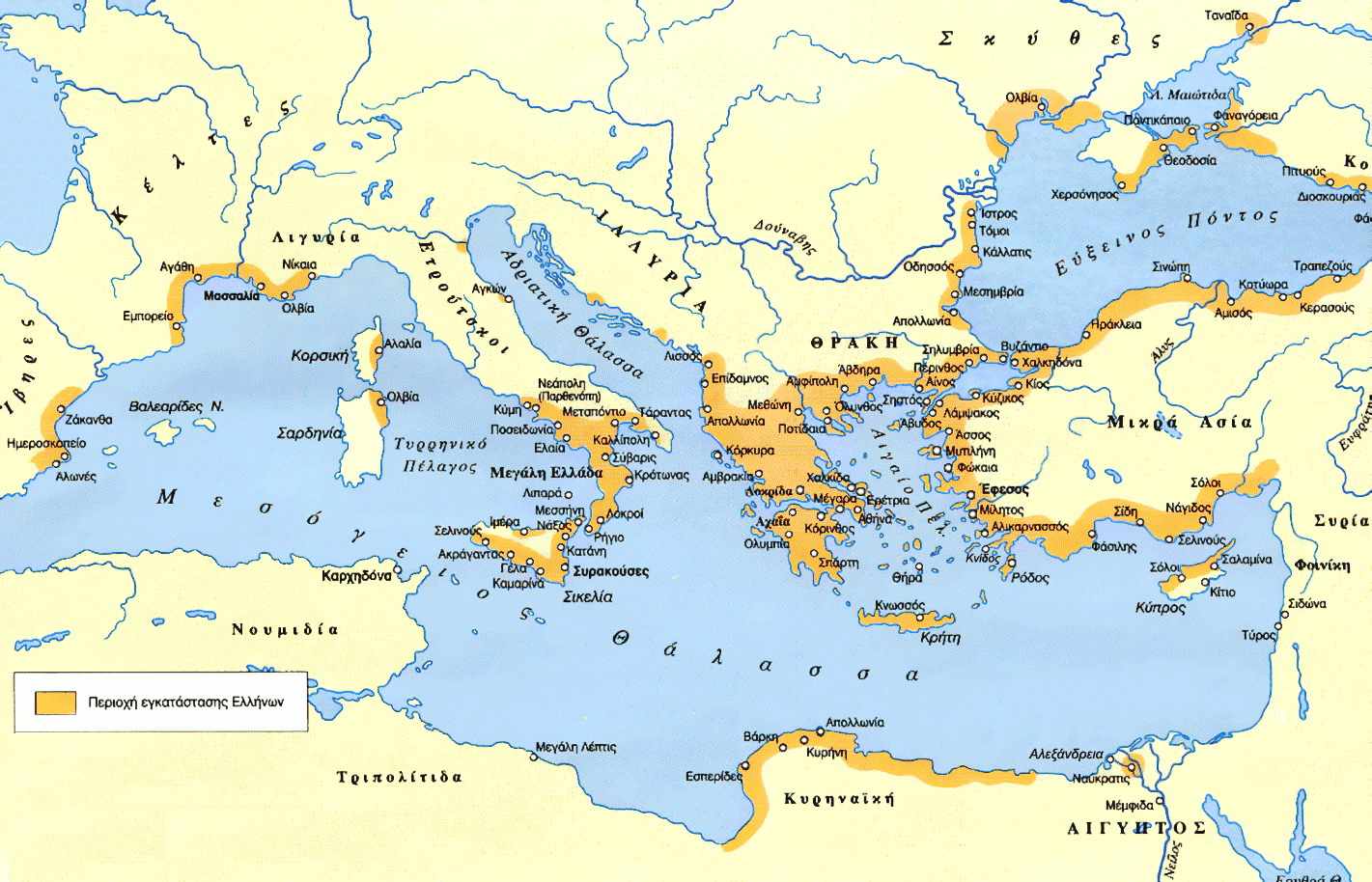Кипрский греческий язык
«Язык - это родина».
В этой фразе Никоса Казандзакиса содержится суть важности родного языка для каждого отдельно взятого человека. Если уж говорить о греческом языке, то мы говорим о высшем духовном и культурном достоянии, созданным человечеством с момента его появления на нашей маленькой планете. Язык, и особенно греческий, - это не просто средство общения, а основа, краеугольный камень, на котором основываются самые высокие значения и понятия греческой культуры с древних времён вплоть до современной эпохи. И, несмотря на бытующее мнение, что греческий язык во многих случаях разделен на древний и новый, несомненно, что наш язык был и есть единым, живым, эволюционирующим, порождающим, но также он, несомненно, имел и имеет периоды спада, изменения и заимствования. Вопрос о том, останется ли он единым или останется в живых, имея огромную рану из-за современной войны против него - я объясню это в конце.
Я намеренно избегаю упоминания о его исторической первичности с недавними открытиями, временным развитием и творчеством. Однако я буду ссылаться на общепринятый и точный анализ науки лингвистики, семантики и этимологии. У великого греческого языка всегда были диалекты, как и у всех других языков по всему миру. Исследования древнегреческой литературы и последующие упоминания о временах Орфея, Гомера, Гесиода и т. д. показывают нам его разнообразие и богатство. Итак, диалекты греческого языка делятся на четыре группы:
- ионийский,
- эолийский,
- аркадский,
- дорический.
Из них аркадский - тот, который сформировал диалект острова Афродиты, Кипра. Вот почему многие лингвисты более правильно называют его аркадо-кипрским диалектом. Это формирование видно из исторически зарегистрированных миграций населения микенского периода на Кипр, с одной стороны, и мифологических источников - с другой. В частности, в дополнение к древнегреческому населению Кипра и известным королям (Пафос и его сын Кинирас упоминаются в «Илиаде»), имена которых часто встречаются в названиях улиц и памятниках идёт мифология Тефкроса. Обратите внимание, что первым названием острова было Аласия, но он был переименован в Кипр по имени ребенка (сына или дочери) Кинира. Тефкрос, основываясь на сохранённых эпосах поэтов троянского цикла (Гомер, Стасинос и др.), приходится сыном Теламону, царю острова Саламис и брату Аякса. После падения Трои он не был принят отцом в Саламине, потому что не принимал участия в мести за несправедливую и нечестную смерть Аякса, одного из важнейших героев греческой мифологии. Не забывайте, что сам Тефкрос, прославленный герой, непобедимый в стрельбе из лука, выиграл погребальные игры в честь Патроклоса и был тем, не вмешайся бог Аполлон, кого мог смертельно ранить своими стрелами самый знаменитый и храбрый троянский герой Гектор. С кораблями и товарищами, а также с частицей земли со своей родины он (Тефкрос) прибыл на Кипр и основал Саламис, недалеко от современного города Фамагуста. По одной из версий он женился на Энни, дочери Кипроса, и их потомки были очень важными людьми такими, как Эвельтон, Онисилос и Горгос. С учетом вышеизложенного предполагается вклад и влияние на окончательное формирование аркадо-кипрского диалекта аркадской группы, который был основным языком в микенский период в окрестностях и вокруг Пелопоннеса.
На протяжении столетий, несмотря на многочисленные завоевания и властвования над Кипром со стороны чужестранцев и варваров, на кипрском диалекте по-прежнему говорят многие и, очевидно, он имеет много общих черт с аркадо-кипрским. Как обоснование этого утверждения в статье профессора Августиноса Августи в газете «Симерини» содержится заключение эксперта доктора Георгиоса Кени, доцента древнегреческой литературы в Университете Кипра:
«Кипрский диалект в настоящее время является единственным истинно живым греческим диалектом, который преподается «по-матерински» и по-прежнему продуктивен». Читайте полную статью здесь.
Поэтому тем, кто говорит на любом другом живом греческом диалекте нетрудно полноценно общаться с киприотами. Стоит отметить, что сегодня перечислены 18 кипрских диалектов, наиболее распространенные из которых это диалекты Никосии, Лимассола, Пафоса, Морфу, горный и Коккинохории.
В заключение я объясню моё упоминание в прологе относительно того, останется ли греческий язык живым, что является очень животрепещущим и важным вопросом, который не получает надлежащего внимания от компетентных органов и избранных должностных лиц. Профессор греческой литературы, историк и исследователь греческого языка Антониос Антонакос в своей книге «ΕΙΣ ΝΟΩΝΟΣ ΑΡΙΣΤΟΣ ΑΜΥΝΕΣΙΑΙ ΠΕΡΙ ΓΛΩΣΣΗΣ» (ссылается на 243-й стих рапсодии «Илиады» Гомера, а это значит, что «это отличное предзнаменование для защиты нашего языка»), тщательно и дотошно анализирует вред, нанесённый греческому языку в 1982 году, после несвоевременного, произвольного, несанкционированного, внезапного, неконституционного и неприемлемого для людей навязывания монотонной системы, а также будущие риски, - как он писал в своей книге, опубликованной в 2002 году. Он чётко заявляет:
«Какой древний язык естественно и без усилий развивающийся на протяжении столетий, делал скидку на претензии исторической памяти и точности и дает не лингвистике именно ее собственные, автономные и некоммерческие критерии? Затем, если такие критерии применимы, наш язык должен был применять латинский алфавит для многих экономических и других материальных благ... и все же все языки с давним прошлым, но не таким давним, как у греческого языка, сложны, требовательны, плотны в семантической памяти и отказываются подчиняться утилитарным критериям. В дискуссиях, которые длились около 100 лет, в прошлом году к французскому языку были применены некоторые робкие изменения, по сути - гармонизация. После месяцев дебатов даже эти скудные и оправданные логические изменения, в конечном счете, были отвергнуты Французской академией (правовой охраной французского языка). И у них нет тяжелой сакраментальной обязанности, как у нас, в одиночку защищать наши древние тексты, которые без ударений и приверженности не поняты. Известно также победное сопротивление испанцев относительно заявления многонациональных компаний о снятии цифры <ñ>».
Наконец, так как я избегаю давать свои личные комментарии по истории греческого языка, я призову другого эксперта и исключительного писателя, фольклориста, исследователя и друга Гиоргоса Лекакиса. Каждый, кто прочтёт его статью «Кипрско-минойский сценарий на Кипре (как минимум) с 1550 года до н.э.» просто онемеет от информации, которую он собрал для Идалиона на Кипре, который является самым старым соглашением в мире. Желающие могут прочитать полную статью здесь.

Язык, таким образом, является родиной и нашим последним оплотом. Мы должны защищать его.
Будьте сильными, и благослови вас Бог!

 Русский
Русский
 English
English Ελληνικά
Ελληνικά
 Posted by
Джордж (Георгиос) Маркос
Posted by
Джордж (Георгиос) Маркос